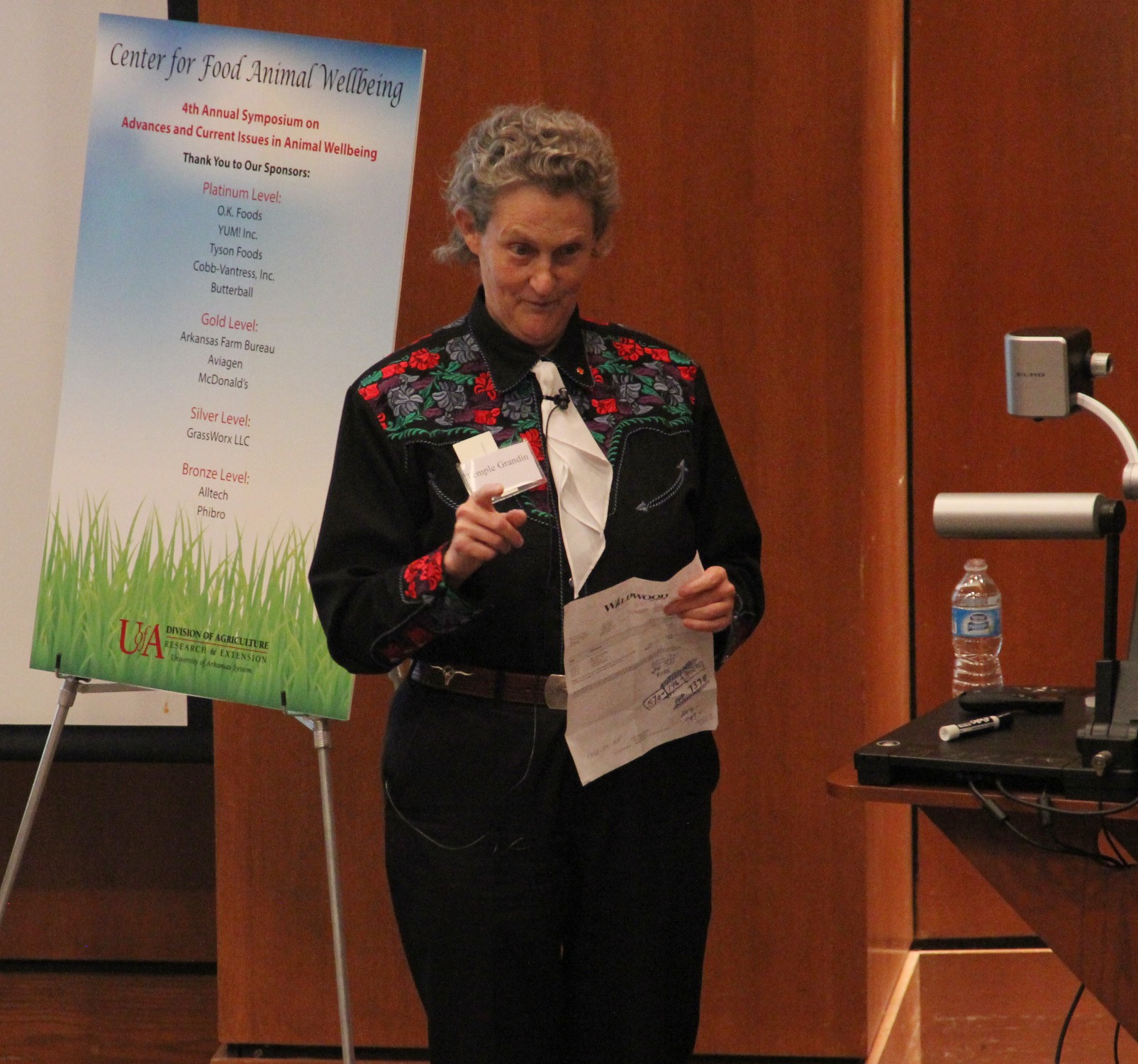FAYETTEVILLE, Ark. – The Center for Food Animal Wellbeing, a unit of the University of Arkansas System Division of Agriculture and the University of Arkansas, hosted its fourth annual symposium Aug. 7 on advances and current issues in food animal wellbeing. Featured speakers included Temple Grandin, a Colorado State University animal science professor and a designer of livestock handling facilities, who addressed animal behavior and welfare.
Grandin stated that with genetic selection, one should focus on optimal selection. “If you focus on one trait too much you’ll wreck the animal,” she said.
The one-day symposium addressed issues being faced today by the swine and poultry industries, as well as topics important to animal production agriculture including property rights versus animal rights and animal behavior and welfare.
Joy Mench, director of the University of California-Davis Center for Animal Welfare, shared her views on the layer industry of the future. “Why cages?” she asked. “Improved egg cleanliness and quality, improved hen health and more efficient production.”
Other speakers included David Newman, North Dakota State University; Paige Glover, Aviagen Poultry; Mark Cooper, Cobb-Vantress, Inc.; Janeal Yancey, a UA animal science department staffer who writes the Mom at the Meat Counter blog, and Elizabeth Rumley, a staff attorney at the Division of Agriculture’s National Agricultural Law Center.
Yvonne Vizzier Thaxton, director for the Center for Food Animal Wellbeing, said, “I am thrilled that this year we had an extraordinary roster of speakers with international reputations speaking on animal welfare and related issues of current interest to those of us in animal agriculture.”
Thaxton said the goal for the Center for Food Animal Wellbeing is to improve animal health, animal handling, food safety and productivity by developing and defining objective measurements of wellbeing including measures of behavior, stress physiology, neurophysiology, immunology, microbiology and production efficiency.
Topics
Contacts
Sara Landis, Communications
Center of Excellence for Poultry Scence
479-575-3192,
